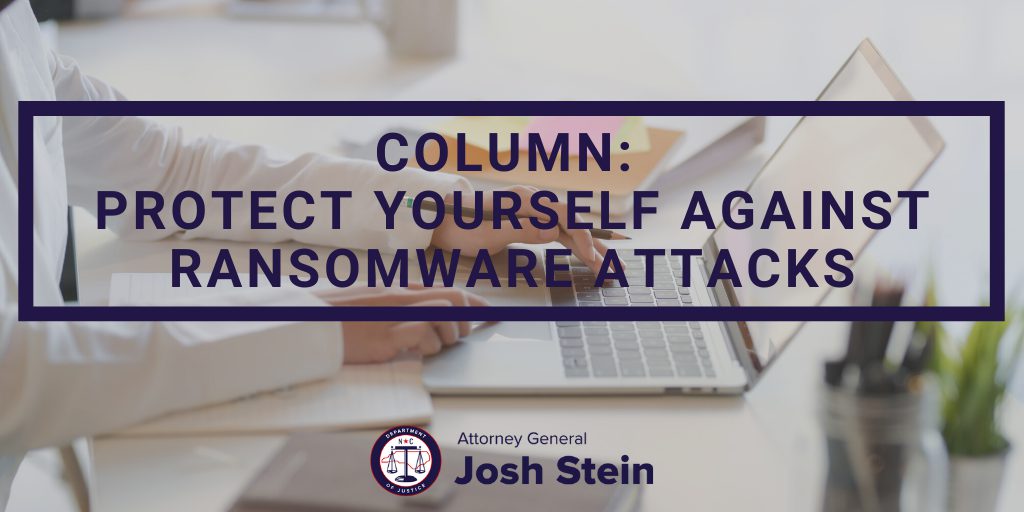
Attorney General Josh Stein
July 2021
Earlier this summer, North Carolinians saw just how troubling a ransomware attack can be as the Colonial Pipeline shutdown wreaked havoc at gas stations across the Southeast. But this wasn’t a one-time thing – ransomware attacks are on the rise. Last year alone, nearly a quarter of the 1,644 data breaches that companies reported to my office were caused by ransomware attacks.
Ransomware can refer to many types of malware that hackers use to gain access to a device or network for the purpose of holding its data for ransom. Ransomware isn’t just a scam. It actually infects devices and doesn’t go away until the ransom is paid. Even if a person or business pays the ransom, the data may not be recoverable. The financial impact of a ransomware attack can be overwhelming, so here are some ways to protect your data from this rising threat.
The most important thing you can do is be cautious with your data and online practices. Most ransomware can only get into your devices if you let it. Ransomware attackers like to take advantage of faulty networks, so make sure you install software updates when they’re available. Also make sure that you have antivirus and malware protection on your devices. These programs automatically scan your files for potential malware threats and can save you major headaches by finding and getting rid of them.
Don’t click on links or download attachments from people or companies you’re not familiar with. Double and triple-check the email or phone number of anyone who sends you something to download. And if you suspect a message is a phishing attempt, which involves the hackers impersonating a person or organization that you know and trust, don’t click on or respond to it.
Protect your passwords. If you use the same password for different accounts and it gets compromised somewhere, cybercriminals could gain access to your devices and accounts and launch a ransomware attack. Set unique and complex passwords with numbers, symbols, and a mixture of upper and lowercase letters. And change them regularly. You should also enable multi-factor authentication whenever possible – this can prevent hackers from logging into your accounts even if they get one of your passwords.
And this is important – remember to back up your data regularly. If you experience a ransomware attack, you’ll at least be able to access the information you need from a secure source.
If you do fall victim to a ransomware attack, report it to the FBI or the U.S. Secret Service immediately, or call my office for guidance at 1-877-5-NO-SCAM. We can never protect all of our information, or the information that others may have about us, from cyberattacks. But if we take steps to protect our data and networks, we can minimize the risks and save ourselves from personal and financial harm in the future.
